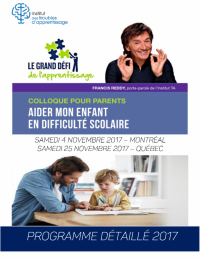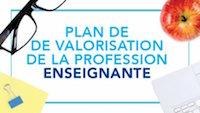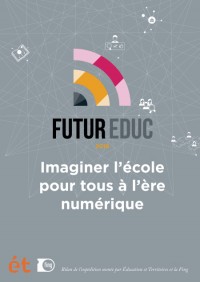« My contention is that creativity now is as important in education as literacy. And we should treat it with the same status. »
Pendant que je participais à l’Université d’été Ludovia 2006, François Guité faisait mention de la même conférence que me suggérait d’écouter Stéphane Bura. J’ai été attentif à la performance de Ken Robinson dans les derniers jours et tout comme François, j’ai beaucoup apprécié l’humour et le propos de celui que la Reine Elizabeth II a élevé au rang de « Sir » « for his outstanding achievements as a leader in creativity, education and the arts. »
« If you’r not prepared to be wrong, you will never come with something original. With the time, young people lose this capacity. »
À méditer…
Tags: "Some posts with English content" « Ludovia 2006 » Pédagogie et nouvelles technologies




If you are interested in creativity, education and educational change, check out this new book, « Education is Everybody’s Business: A Wake-Up Call to Advocates of Educational Change » (Rowman & Littlefield Education). It’s by educator Berenice Bleedorn ( http://www.creativityforce.com ), who was the gifted consultant for the Minnesota State Department of Education, a professor of creativity in both the business and education schools at the University of St. Thomas, has taught creativity to inmates in the state prison, and writes and speaks about creativity throughout the world.
This book really makes the case for the deliberate teaching of thinking – creative and critical – in education. It also links the importance of education to a thriving democracy. A great idea in the book is that « democracy deserves the best thinking possible » – which offers a great place to begin one’s thinking about any number of political issues in the world today. Some other good quotes from the book include:
* Children and youth are all much smarter than we think. They are smarter than the standardized test scores tell us. They have a longer tomorrow than adults, and most of them think about it more than we realize. Students have a right to understand what is happening to the world that they are inheriting.
* The hope is that educational programs will become better designed to make the best possible use of the natural power of the human mind to grow and develop and to be significantly active in service to a cause beyond oneself.
* There are no limits to the intellectual resource of the human mind when it is provided with an atmosphere for personal growth.
* The idea that `Creativity=Capital’ is not a facetious one. The capacity of the human mind for creativity and innovation is unlimited. Harvesting the creativity in a business translates to money in the bank.
* Creative thinking can be taught if learners can practice the art of being serious and playful at the same time.
* The educational problem of a disparity between average achievement scores of white students and black students may have some of its origin in the nature of schooling that neglects programs that identify creative talent and fails to provide for its appropriate expression in problem solving and other creative thinking activities.
* Educators have not only an opportunity but an obligation to open the « doors of perception » for all students. The enduring purpose of education is to provide students with a perception of the outer reaches of their talents and possibilities and, ideally, to give them a reason to continue to learn and contribute to their society for all of their lives.
* The mandate is undeniable. The future of the environment can be guaranteed only with the determined effort of all the players in the world drama in every society, and there is no time to lose. It is a perfect project for the integration of schools and society, the community and the education profession. It is a time for personal action and resolve.
* Initiatives from concerned citizens and business interests have a vital place in developing educational outcomes that can be competitive with the rest of the developing world and can continue to contribute to a better life for all.
* Paradoxical thinking is a prerequisite for a society and world steeped in a diversity of cultures, religions and ideologies if we ever hope to achieve a more sane and peaceful world. If complex thinking were taught, practiced and modeled during the process of education everywhere, the people of the world would understand more and fight less.
[…] déjà écrit sur Sir Ken Robinson ici (1, 2, 3). Avec le temps, il est devenu un prolifique auteur, un conférencier efficace et un des […]